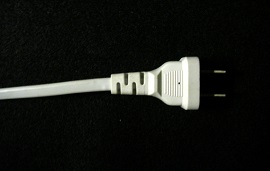The modern home is protected from a number of factors and forces. Shingles on the roof protect our homes from outside elements, security systems and locks protect us from burglaries. We are also likely to purchase homeowners insurance to protect our home from floods, storms, and other natural perils. These are not the only potential threats to our home, and you may have already considered protecting your computer, television and other electronic equipment from power surges. Unfortunately, many homeowners fail to consider the effect of power surges on their hot water heater, furnace, boiler, air conditioner and other components of their HVAC system. Yet a power surge can have severe financial consequences.
The Potential Danger:
A power surge can severely damage or ruin appliances, and any appliance can be susceptible to a power surge. Appliances and electrical units are designed to withstand a certain electricity voltage, and when the power spikes beyond this tolerance, it can cause damage. As more power is sent to the appliance, it can cause components to burn out and damage circuit boards. Even seemingly simple appliances can still contain components that are susceptible to power surge damage. If a power surge does cause significant damage to your HVAC system, it could cause thousands of dollars of damage, so it is best to try to minimize the risk.
The Causes of Power Surges:
The modern home is filled with complicated electrical items, and our power systems are just as complex. This complexity means that there can be a number of causes or factors that contribute to an external or internal power surge. Common causes of power surges include electrical storms, faulty wiring in the building, downed power lines, maintenance occurring at the power plant, aged or bad electrical components, power outages or larger appliances cycling on and off. Unfortunately, there is no predicting when and where a power surge will occur. For example, although you may have sat through electrical storms with no damage, the next storm may be the one that triggers a power surge in your home. While some of these risk factors can be avoided with proper maintenance, some are beyond the control of a homeowner, so it is best to be prepared and ensure that your home and HVAC system are protected.
Protecting Your HVAC System:
In addition to assisting you with HVAC repairs and maintenance, your HVAC technician can also help to protect your HVAC system from a potentially costly external or internal power surge. Your technician will assess your system and determine its vulnerability, before providing recommendations to reduce the risk. Unfortunately, power surges are a common occurrence and the longer you delay protecting your home and HVAC system, the greater the risk that you will be faced with a costly repair to correct this mistake. While no home can be completely immune to power surges, the steps your HVAC technician recommends will significantly decrease the chance that your home will be affected by a damaging surge.
